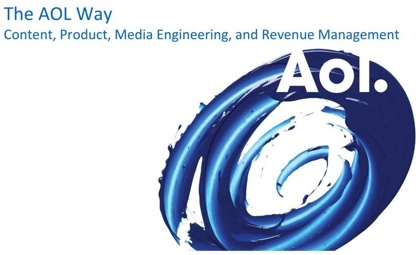
In the last couple of days, two respected Engadget editors have resigned (details here & here). Amongst their publicly disclosed grievances, both cited the AOL Way – which appears to favor assembly line content. Quantity over quality, current, and search engine optimized. While Engadget hasn’t yet been subjected to the AOL Way, these defections make many wonder if the writing’s on the wall. Instead of continuing to evolve as a largely independent (and loved) entity, will Engadget be consumed Borg-like into newly appointed Huffington’s AOL media empire?
Along with this discussion is a renewed debate over ‘blogs as journalism’ and eHow Google might deemphasize the likes of low quality content farms. From a blogger with stints at Mashable and Engadget:
Almost everyone uses Google to find out more about news that’s happening right now, whether it’s tech industry stuff, celebrity breakups, or political revolutions. Unfortunately, the rules Google uses to determine which websites gain strong rankings — and thus frequent traffic, high impressions and strong ad revenues — betray journalists and the people who need them at every turn. Google’s algorithms and the blog linking customs built around them favor those who write first, not those who write accurately. I have no qualms about producing entertainment and other products to meet demand. But journalism must not function this way if it is to remain useful.
And it certainly seems like many pander to Google. For example, TechCrunch (another AOL property) was once a blog purely dedicated to Web 2.0. They were extremely successful and I was a regular. But I suspect it’s been even better for business to expand their reach by covering Apple’s every move.
Yet, building a business around Google’s indexing and oversized influence shouldn’t necessarily be burdened with negative connotation
